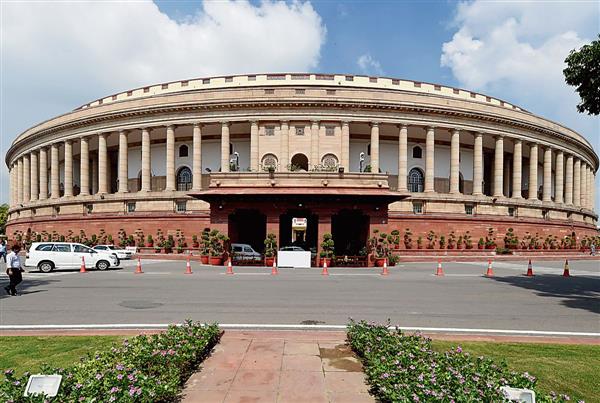According to Bill, traditional knowledge is outside the scope of patent and IPR regimes

Shashi Tharoor introduces the Protection of Traditional Knowledge Bill in the Lok Sabha, 2022.
Traditional knowledge (TK) is exempt from the patent or intellectual property law, according to the Protection of Traditional Knowledge Bill, 2022 (Traditional Knowledge Bill) introduced in the Lok Sabha on April 1 by Shashi Tharoor, a Congress politician, and MP.
“TK is neither an invention nor a personal possession. Instead, it is passed down and perfected over numerous generations, and hence cannot be termed “intellectual property,” according to the Bill.
Identity and livelihood
Many guardians still depend on traditional knowledge (TK) for their livelihood & identity, according to RS Praveen Raj, Principal Scientist-IP Management and Technology Transfer, CSIR-NIIST, Thiruvananthapuram, who prepared the Bill for Tharoor. As a result, misuse of TK has a significant negative impact on their interests.
Patenting and intellectual property protection ensures that innovative knowledge is owned and used exclusively. Several attempts are already made to obtain such exclusive rights on India’s TK, which would be a grave injustice.
This bill proposes a non-IPR type of protection, with no property rights, for in-situ protection, preservation, promotion, as well as sustainable development of TK, as well as matters related to or incidental to it.
Preventing the misappropriation of traditional knowledge
“The Bill seeks to prevent traditional knowledge from being misused, to promote their enrichment by anyone, even those who are not its custodians, and to ensure that the benefits reach all investors down the line,” Praveen Raj explained.
The Bill doesn’t really attempt to create specific rights, and it does recognize traditional knowledge holders/communities as custodians of TK, with state/union territory ownership (deemed ownership).
If a certain TK is practiced in multiple States or Union territories, the respective governments are regarded to have shared ownership as well as an equal & indivisible share of any claim and interest within this traditional knowledge.
Union has freedoms and rights.
In short, the Bill recognizes the Union of India’s total and absolute ownership of everything TK found inside its national territory and attempts to compensate indigenous populations, its caretakers, by granting some licensing rights (deemed licenses), including the right to self-determination.
Only until TK holders/communities have registered a “knowledge society” in accordance with local legislation then they will be recognized as caretakers. They should also seek acknowledgment from the proper government, which is the TK’s ‘deemed owner.’
Knowledge society
A knowledge society can be defined inside the Bill as a set of people or families, whether indigenous, tribal, or otherwise, who live within the national territory and can be distinguished from those other groups as well as members of the society by their exclusive association with one or more forms of traditional knowledge:
Any such group of individuals or family shall constitute a legal entity, such as a trust, society, or company, besides a large enterprise, but also including a company under section 2 of the Companies Act, 2013, sub-section (62) and is constituted specifically and exclusively for managing commercial and non-commercial use of one or more forms of TK.
The bill also offers administrative mechanisms for managing traditional knowledge, such as the National Authority on Traditional Knowledge and State Boards.